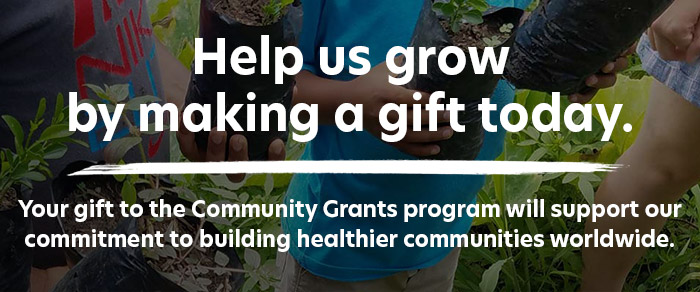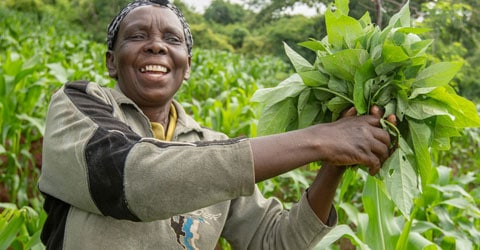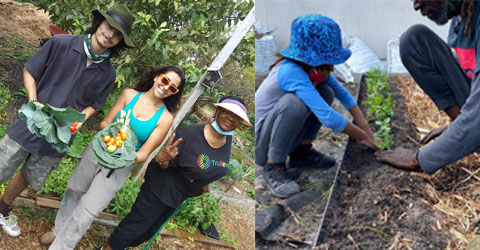
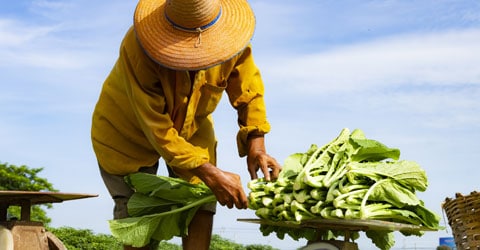
The following is an article from a Community Grant recipient.
If you were to visit Kisii County, Kenya today, right away you would probably notice the hilly landscape and the green fields as far as the eye can see. Blessed with rich volcanic soils and well-distributed rainfall throughout the year, Kisii is widely known for growing the best indigenous vegetables and fruits in the country.
So, why are there so many malnourished children and adults here? Why do so many suffer from nutrition-related diseases and dietary deficiencies?
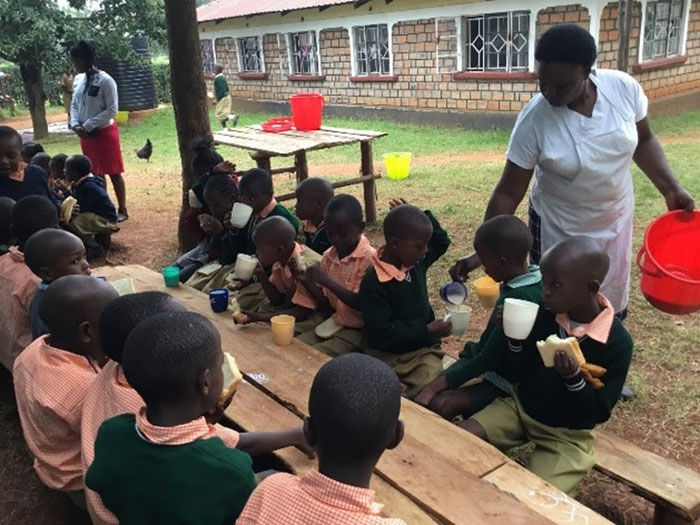
My name is Euvonne Nyaboke, and I am an agronomist and the Project Coordinator of the Food Literacy Project at GRACE Initiative, a nonprofit NGO in Kisii, Kenya. GRACE Initiative is a local affiliate of GRACE Project, a 501(c)3 organization based in the US. Our mission is to inspire and secure financial independence for Kenyan families through education, healthcare, and vocational agricultural training. Because we recognize that food security and proper nutrition are essential for improving well-being, we offer training both in climate-smart farming and nutrition at school and community levels.
Last year was an especially challenging and rewarding year for us at GRACE. The COVID-19 pandemic tested the limits of our resources and resolve, as we were forced to close our school and send the students home. Because some of them relied on us for meals, we had to find a way to continue providing food (and in many cases, for their siblings and caregivers). In order to do so, we collaborated with local partners like Ndemo Farm, and we were able to donate food products including maize, beans, and green grams (also known as mung beans). The team effort, led by our executive director, Mary Kibai, was ultimately successful: the students and their families received increased monthly rations as the pandemic continued to threaten their livelihoods.
The team effort, led by our executive director, Mary Kibai, was ultimately successful: the students and their families received increased monthly rations as the pandemic continued to threaten their livelihoods.
In matters of food and nutrition, GRACE Initiative believes in leading by example. We run a feeding program at the Greater Grace Academic Center, a school run by the GRACE Project. This is not just a regular feeding program; we go above and beyond to make sure the foods are not only nutritious and balanced but also organic, and our students receive two hot meals each school day. These meals combine staples like sweet potatoes, rice, beans, and maize with organic vegetables grown on the school farm.
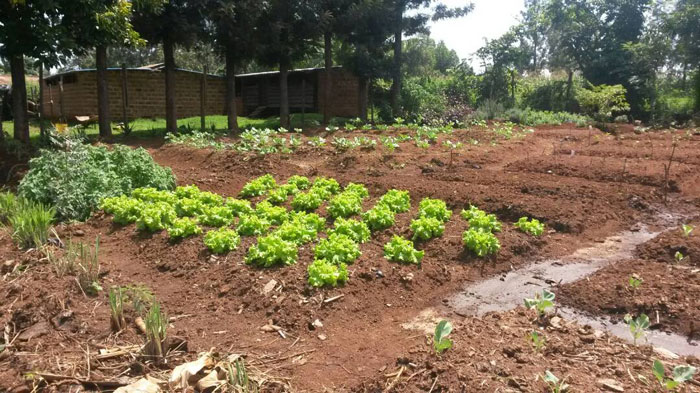
The grant we received from the T. Colin Campbell Center for Nutrition Studies is for a Food Literacy for Healthy Communities project, which will allow us to retrain the community on the importance of plant-based foods. In past generations, these foods were the foundation of diets in our communities, and there remains an abundance of local knowledge that needs to be preserved and promoted. This project will help reconnect people with those traditions, and help them to realize how much their health at all levels is tied to what they eat—from the athletic and academic performance of children, all the way through adulthood.
We will also empower the community by educating them on climate-smart farming. This is especially important in Kisii because the climate is changing rapidly and the land has been subdivided so much that most families only have enough land to establish a small kitchen garden. Anyone trying to grow food needs to be made aware of these challenges and the most effective techniques for coping with them. For example, we are training people interested in making multi-storey kitchen gardens, which can produce more than gardens on flat land; we’re also teaching them how to better utilize wastewater.
Together with local chiefs and extension officers from the Ministry of Agriculture, we are looking forward to getting started. The project builds on our previous work to elevate the community, and it will improve the ability of individuals to practice better nutrition using the vegetables and fruits from their own gardens. This is a powerful lifetime skill. It can reduce a parent’s trip to hospitals by 80% and improve a child’s development in numerous ways. We look forward to continuing our partnership with the T. Colin Campbell Center for Nutrition Studies in our mission to promote good health through nutrition.
The T. Colin Campbell Center for Nutrition Studies (CNS) is committed to increasing awareness of the extraordinary impact that food has on the health of our bodies, our communities, and our planet. In support of this commitment, CNS has created a Community Grant initiative to empower sustainable food-based initiatives around the world by providing grants to enable innovative start-ups and to propel the growth of existing initiatives. Please consider making a donation to this great cause. 100% of your donation will go to support initiatives like the one you just read about in this article.
Copyright 2026 Center for Nutrition Studies. All rights reserved.
Deepen Your Knowledge With Our
Plant-Based Nutrition
Certificate
Plant-Based Nutrition Certificate
- 23,000+ students
- 100% online, learn at your own pace
- No prerequisites
- Continuing education credits


